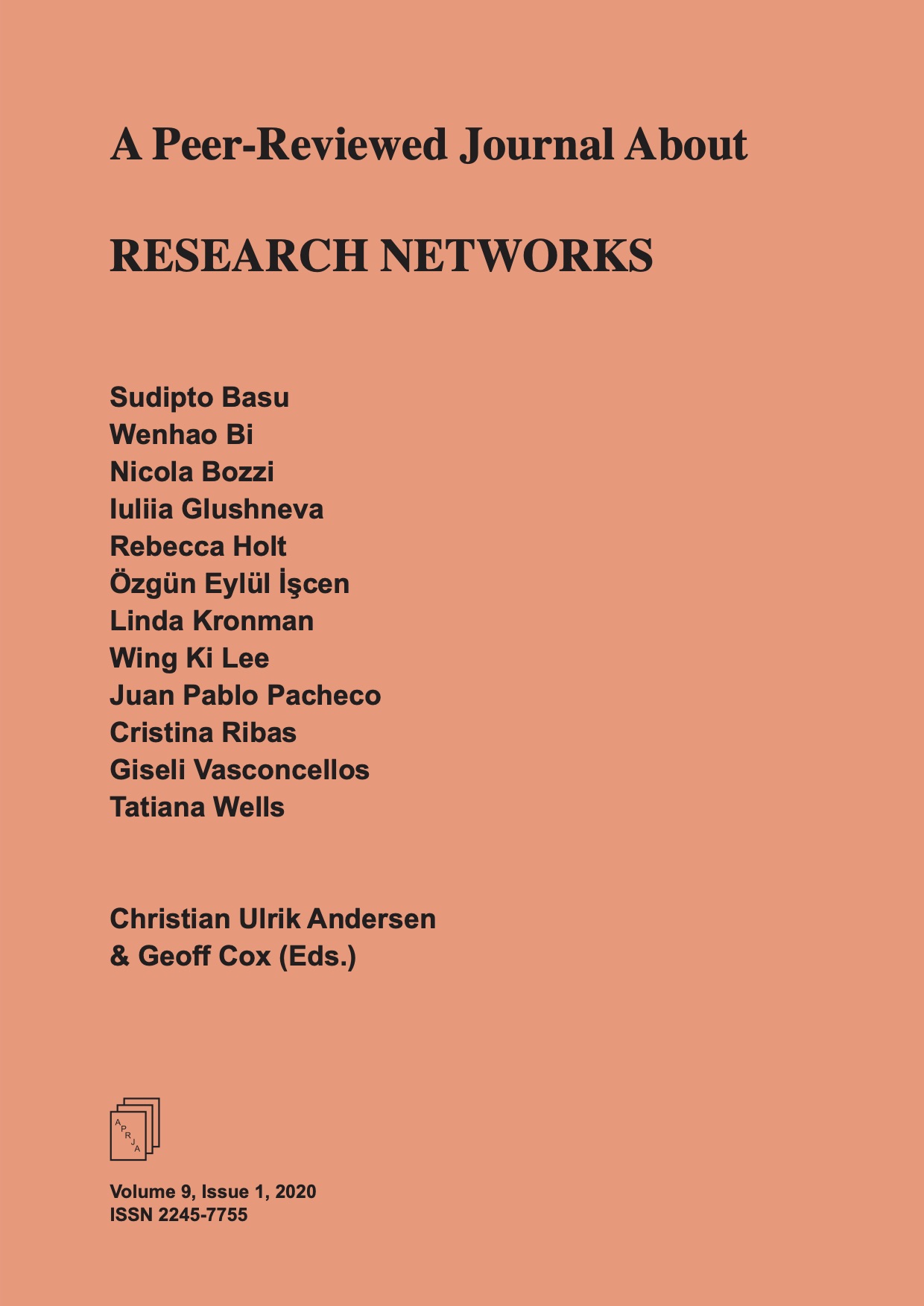On the Ends of the Network as a Zone of Friction (And Extraction)
DOI:
https://doi.org/10.7146/aprja.v9i1.121486Keywords:
Operational image, network extractivism, habits, general intellect, interface, general economyAbstract
In a world-order where planetary computational networks have restructured nearly all spheres of existence, what is not already networked lies in wait merely as standing-reserve. Today, it seems as if the network and the world are naturally interoperable. Thinking through Harun Farocki’s work on operational images, I however locate a zone of friction or incommensurability between the network and the world. Revisiting Norbert Wiener’s anti-aircraft predictor – a founding episode in the history of cybernetics – I show how this gap was bridged by a logic of (en)closures that reduced the living human form and the world to narrow operational ends; banishing the openness and indeterminacy of both life and nature into undesirable contingency. However, cybernetics’ relentless expansion into a universal episteme and planetary infrastructure since the Cold war necessarily floods the network with contingency; which it wards off by feeding on a disavowed living labor. I argue that this living labor is an uneasy reconciliation of mechanism and vitalism, which we may call habits. Drawing on the Marxian notion of general intellect, I posit how habits are key to generating network surplus value, and to cybernetic expansionism. Habits shape, prepare the outside for its subsumption into the network. Yet they are not given the status of productive activity, and consequently disavowed and vaporized by networks. I propose that this living labor be given a specific name – interfacing – and, following Georges Bataille’s critique of political economy, speculate on the reasons for its disavowal. Drawing on Bataille’s idea of the general in ‘general economy’ (that which is opposed to utilitarian or operational ends) and Hito Steyerl’s How Not to Be Seen, I try to imagine what an interface contiguous with the general intellect might be.
Downloads
Published
Issue
Section
License
Copyright (c) 2020 A Peer-Reviewed Journal About

This work is licensed under a Creative Commons Attribution-NonCommercial-ShareAlike 4.0 International License.
Copyrights are held by the individual authors of articles.
Unless stated otherwise, all articles are published under the CC license: ‘Attribution-NonCommercial-ShareAlike’.
The journal is free of charge for readers.
APRJA does not charge authors for Article Processing Costs (APC)


